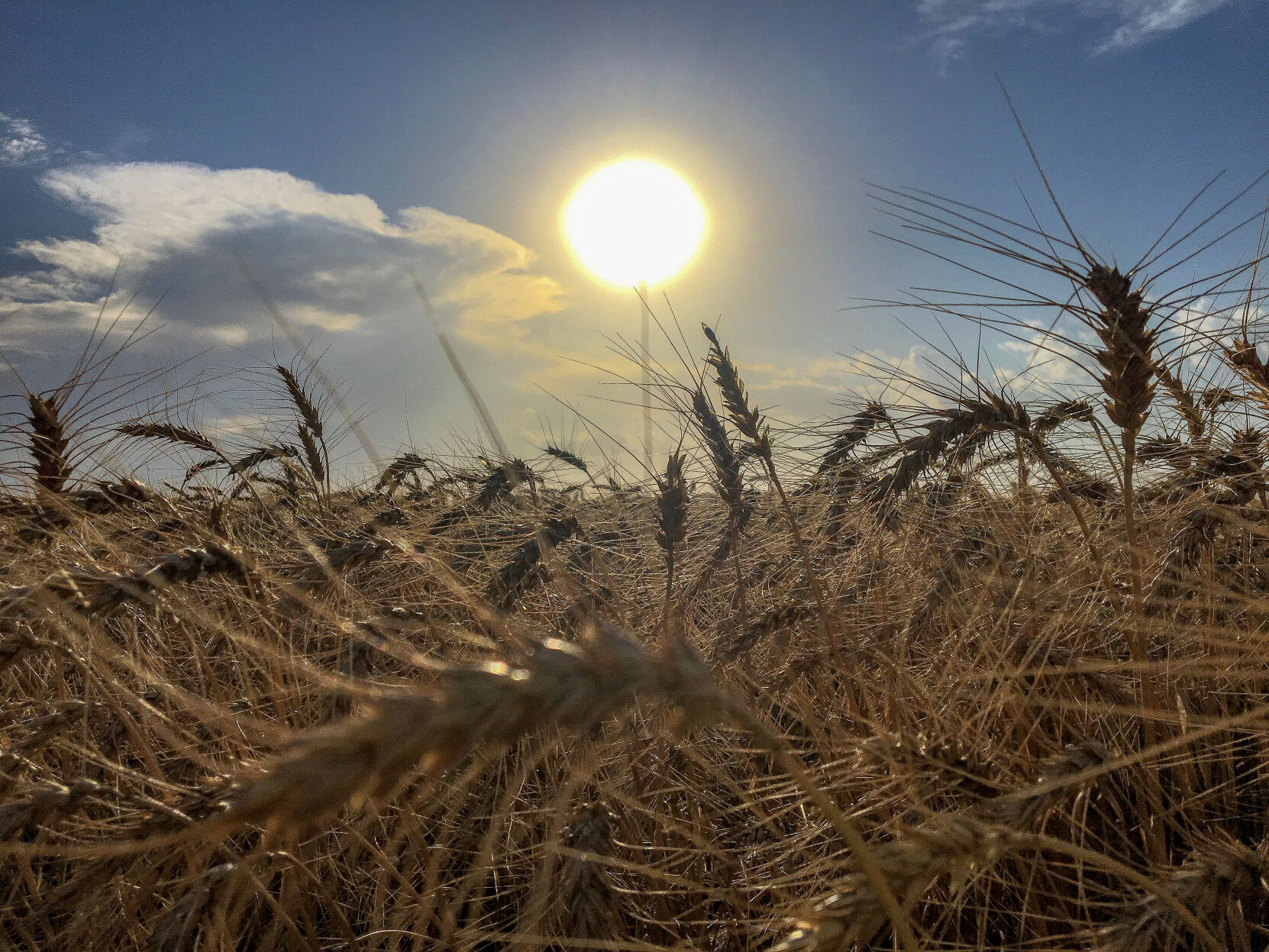Aaron Harries, vice president of research and operations for Kansas Wheat provided an annual update on activities and research conducted by the Kansas Association of Wheat Growers and Kansas Wheat Commission. He spoke at the first session of the virtual Sorghum U/Wheat U, hosted by High Plains Journal, Aug. 11.
Kansas Wheat Innovation Center updates
The Kansas Wheat Innovation Center is the crown jewel of the state’s wheat farmers’ efforts to grow the industry one outstanding variety at a time. The 8-year-old $15 million facility features 48,000 square feet of space and represents the single largest research investment by Kansas wheat farmers in history, according to Harries. It includes greenhouse, lab and office space.
And opening in January 2021 will be the brand new Wheat Quality Lab, where breeders and researchers can see how the genetics they develop in the greenhouses compete for milling, flour and baking quality.
“It’s that missing piece of the puzzle, where we harvest the wheat genetics developed, and test the quality and the milling and baking characteristics of the wheat,” Harries said. Construction was set to start the middle of August.
Manhattan, Kansas, is known globally for the wheat research coming out of the Innovation Center. Recently the National Science Foundation named Kansas State University as the lead institute for the world’s first Industry/University Cooperative Research Center for Wheat. Other projects currently in the pipeline include work into stacking traits into winter wheat varieties that will provide resistance to pests, disease or drought, as well as projects to mine the hidden traits of ancient wild emmer wheat for inclusion into new wheat varieties, and more.
Fields Forward
The Innovation Center was funded by state wheat checkoff dollars, leveraged with donations. And through the years it’s become apparent to the Kansas Wheat Commission that there is a vast need for more research on wheat that’s beyond the limitations of the checkoff dollars farmers put into the pot.
“Since the Kansas Wheat Commission was formed in 1957, Kansas farmers have invested millions of their dollars in wheat research,” Harries explained. In 2011, the Kansas Wheat Commission Research Foundation was formed to accept tax-deductible gifts from businesses and corporations across the spectrum of the industry that might support wheat research. Gifts to the foundation are exclusively earmarked for research, unlike checkoff dollars that are used not only for research but also marketing, education and promotion efforts.
The Foundation kicked off the Fields Forward campaign, in an effort to raise $4 million to fund three target areas: Fields of Research; Fields of Study and Fields of the Future.
Fields of Research, as Harries said, is about bringing dollars in to support the current import wheat research going on at the Innovation Center, all to help improve the profitability of farmers while still striving to improve the quality of wheat grown in the state and marketed to end users around the globe.
Fields of Study, Harries explained, is a focus on keeping a pipeline of future research talent. By supporting the young people who will be tomorrow’s wheat researchers, and breeders, donors are planting the seeds for future achievements in the field.
Finally, Fields of the Future is about maintaining the long-term support of wheat research, while maintaining the technology and facilities needed to sustain the work. In order to make giant leaps forward in wheat, it’s vital that researchers have up-to-date equipment and technology at their fingertips.
The Fields Forward campaign has reached the halfway fundraising goal, surpassing the $2 million mark in the past 18 months. The Vanier family of Salina, Kansas, donated $1 million to the campaign as a tribute to their flour milling history in Saline County. In recognition of the Vaniers’ generosity, the Kansas Wheat Alliance named its new wheat variety available this fall “Western Star,” after the family’s flour mill that started it all.
To learn more about how you might donate to the Fields Forward campaign, visit www.FieldsForward.org.
You can catch Harries’ presentation and more by visiting www.hpj.com/suwu. There you’ll find recordings of the virtual sessions that were held Aug. 11 and 12.
Jennifer M. Latzke can be reached at 620-227-1807 or [email protected].




